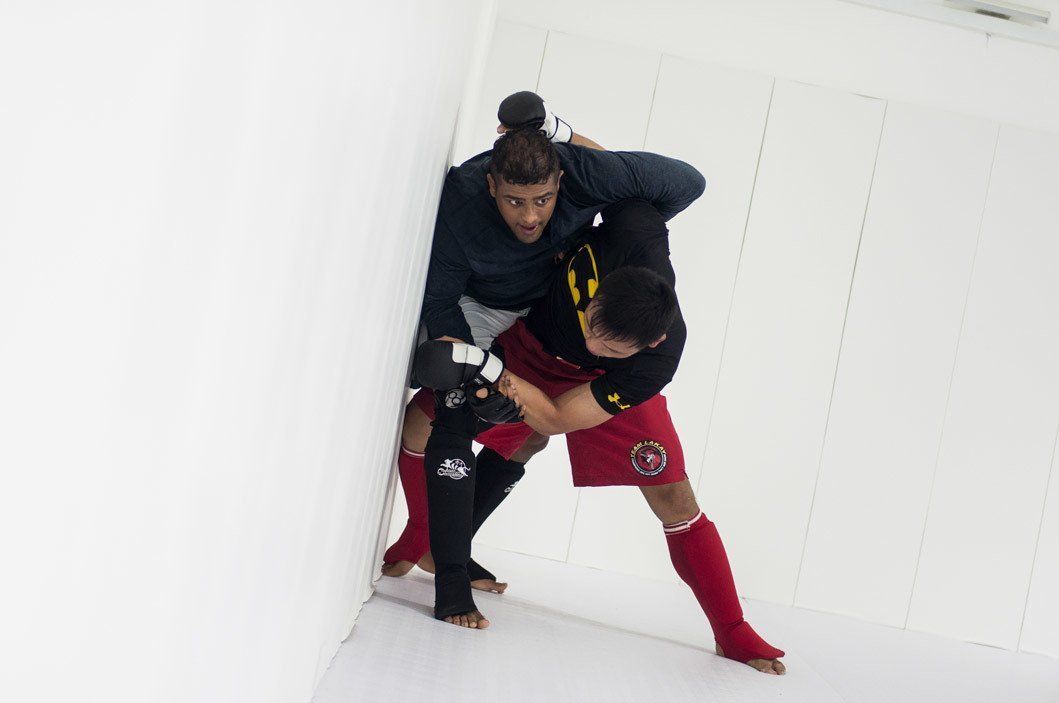7 Misconceptions Most People Have About Training In Martial Arts

Learning a martial art could be one of the most rewarding things you could do with your life. Not only is it a fun way to get fit, it is also extremely satisfying to see yourself improve with consistent practice. And the best part of it is, it’s really never too late to start.
Here, we delve into some other common misconceptions that people have about martial arts.
#1 You Need To Be Fit To Start
Beginners in martial arts will definitely find training tough during the initial stages. Muay Thai, for instance, is a full-body workout that will leave you sore for days on end if you’re not used to its intensity.
However, not having much experience with fitness can actually be an advantage, as you’re not likely to have any preconceived notions about your strength or ability, making you more receptive to the new skills and techniques you’ll be learning.
Along the way, you’re likely find yourself improving in the areas of balance, coordination, and flexibility, in addition to getting stronger and having improved cardiovascular fitness.
#2 It’s Dangerous
As with most close contact sports, there’s no denying that there’s an element of risk involved. However, it’s in the gym’s interest to keep you safe, so the coach should take all necessary precautions to ensure you don’t get injured.
For instance, before you spar during a boxing or Muay Thai class, you’re required to wear shin pads and head gear, and you’re told to only use about 50 per cent of your strength. During a jiu-jitsu class, the professor or coach will usually pair you up with someone around your size or more experienced to ensure you don’t get hurt.
Of course, common sense should still come into play; listen to your body and scale back on training when you’re exhausted as that’s when the risk of injury is at its highest.
#3 You Instantly Become A Street Fighter
Just because you can throw a decent jab or pull off a triangle from guard doesn’t mean that you should engage should the unfortunate circumstance of getting into a street fight arise. In a street fight, weapons may be involved, and the rules of the gym do not apply. Your best bet is still to defuse the situation or to run away. Safety first, always.
#4 Everyone Who Trains Is A Jock
Nothing could be further from the truth. Most gyms these days are made up of a mixed bag of martial arts hobbyists, including students, white-collar workers, and increasingly, a number of women too.
With such a diverse mix of people of varying backgrounds, skills and fitness levels, chances are, you won’t have trouble finding your tribe and fitting in.
#5 You Should Jump Straight Into Training MMA
Unless you’re lucky enough to be able to train full-time and have ample time to rest, your best bet is to first focus on building your skills in one of the striking or grappling disciplines, be it Muay Thai or Brazilian jiu-jitsu.
It would be pointless to jump straight into an MMA class if you can’t throw a proper punch or roundhouse kick, or are not familiar with the basics of grappling. An MMA session would usually involve some combination of all of these, as well as wrestling.
#6 You Need To Start Young
While it’s true that many professional MMA fighters started training when they were children or teenagers, those who start their journey in their 20s, 30s, and 40s will also be able to become a decent martial arts with consistency and discipline.
Don’t forget, too, that age brings with it perspective and maturity, putting you in a better position to work through training plateaus or off-days.
#7 Competition Is Mandatory
When you have leveled up your skills, your coach may ask you if you’re keen to start taking part in competitions. Competitions are great because they help you develop as a martial artist, as they gives you the chance to test your skills in high-pressure situations.
However, there are some people who would rather not compete, and there’s absolutely nothing wrong with that either. In fact, most people who train do it for leisure rather than to become serious competitors.
Remember: Your martial arts journey is yours and yours alone. Choosing not to compete does not in any way undermine your legitimacy as a budding martial artist.
Images: Mark Teo
Venue: The Dojo
Venue: Shitoryu Karate Association Singapore
Venue: Team Highlight Reel






















